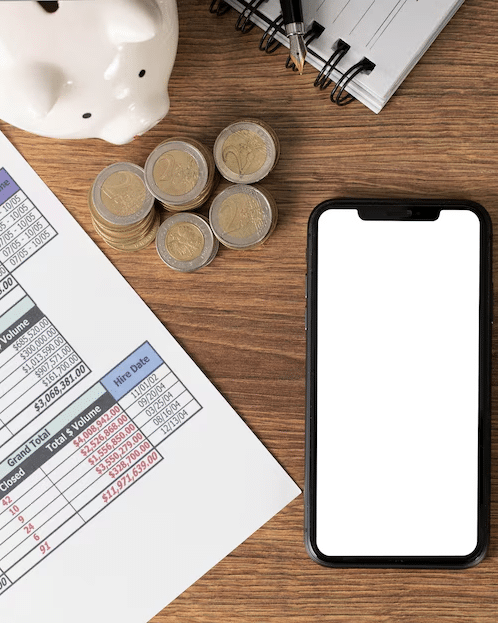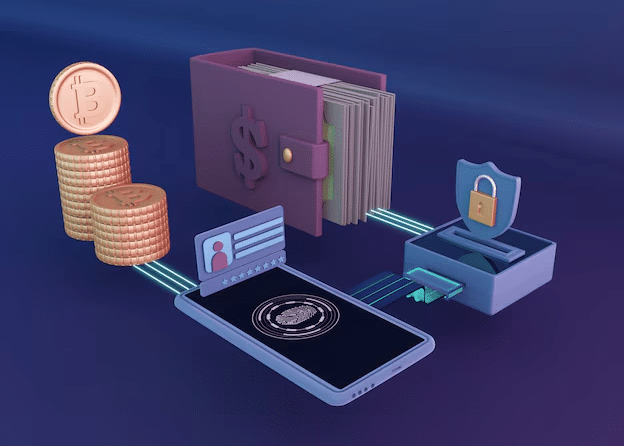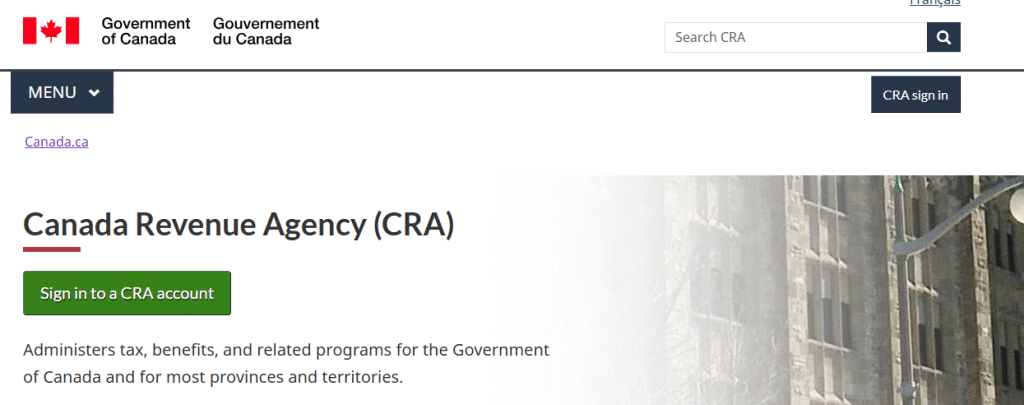The crypto tax in Canada is straightforward yet strict; 50% of capital gains and 100% of business income from crypto are taxable.
The CRA requires record-keeping for 6 years, with penalties reaching 50% for gross negligence.
Compliance is essential with over 3 million Canadians owning cryptocurrency and the CRA having audited 20,000+ crypto-related accounts since 2022.
Crypto miners can claim CCA deductions at 30% (Class 50) on equipment, while day traders face full taxation on their profits at rates up to 33% federally plus provincial taxes ranging from 10-21%.
In this guide, I simplify everything you need to know about crypto taxation in Canada for 2025. So, without further ado, let us get right into it!
How Crypto Is Taxed In Canada?
In Canada, cryptocurrency is not considered legal tender. Instead, the CRA treats crypto assets as either business income or capital gains, depending on your specific activities.

Determining which category applies to your situation is the first step in proper tax reporting. Check the factor given below to decide whether or not you fall in Business Income vs. Capital Gains:
The CRA considers several factors when determining if your crypto activities generate business income or capital gains:
- Frequency of transactions: Regular trading suggests business activity
- Period of ownership: Short holding periods indicate business activity
- Market knowledge: Extensive expertise suggests business operations
- Time commitment: Substantial time spent monitoring markets points to business activity
- Financing method: Using debt to finance purchases resembles business operations
- Advertising: Marketing your crypto services indicates business activity
Crypto Tax Canada Rates (2025)
For capital gains, only 50% of the profit is subject to taxation at your marginal tax rate. For business income, 100% of the profit is taxable at your regular income tax rate.

Here’s what you need to know additionally about crypto tax rates in Canada:
- Federal tax brackets: Range from 15% to 33% depending on income level
- Provincial tax: Additional provincial taxes vary by province
How to Calculate Crypto Tax in Canada?
Calculating your crypto tax liability involves tracking all your transactions and determining their fair market value in Canadian dollars.
Here is a step-by-step crypto tax calculation:
Step 1: Record all transactions
Document each purchase, sale, trade, or other disposition

Step 2: Determine transaction value
Convert crypto value to CAD at the time of transaction
Step 3: Calculate cost basis
Identify your acquisition cost plus related expenses
Step 4: Determine capital gain/loss
Subtract cost basis from proceeds of disposition
Step 5: Apply the inclusion rate
For capital gains, include 50% of the gain in taxable income
Using a Crypto Tax Canada Calculator
Several tax software options can help automate this process:
- Koinly
- CoinTracker
- CryptoTaxCalculator
- TaxBit
These platforms can import your transaction history from exchanges, calculate gains/losses, and generate tax reports compatible with Canadian tax requirements.
Disclaimer: This information is a general estimate of Canada’s capital gains taxes, assuming all amounts are in CAD. It does not account for carried-over losses, deductions, tax credits, or capital losses that may offset gains. For precise guidance, consult a qualified tax advisor.
Common Crypto Tax Scenarios in Canada
The CRA considers trading cryptocurrency a disposition (when you trade one cryptocurrency for another). You must calculate the gain or loss based on the fair market value of the crypto assets at the time of the trade.

Example: If you trade 1 Bitcoin (worth $50,000 CAD) for 25 Ethereum (also worth $50,000 CAD), and your original cost for the Bitcoin was $30,000 CAD, you would have a capital gain of $20,000 CAD, with $10,000 CAD (50%) being taxable.
Mining Crypto in Canada
Mining cryptocurrency is typically considered business income in Canada. You must include the value of all mined coins in your income when received. Mining expenses, including equipment and electricity, may be deductible as business expenses.

Cryptocurrency mining equipment like ASIC miners or GPU mining rigs may be eligible for capital cost allowance (CCA) deductions, typically falling under CCA class 50.
Staking Crypto Tax Canada
Staking rewards are generally treated as income when received. The fair market value of the tokens at the time you receive them is included in your taxable income.

When you eventually sell these tokens, you’ll also need to calculate capital gains or losses based on the difference between your selling price and the value when you received them.
Crypto Losses Tax Canada
If your crypto investments result in losses, you can use them to offset capital gains. For capital losses:
- You can use capital losses to offset capital gains in the current tax year
- Excess losses can be carried back three years or forward indefinitely
- Capital losses can only offset capital gains, not other income
For business losses, you can deduct these losses against other income, subject to certain restrictions.
CRA Crypto Tax Reporting Requirements
The CRA requires you to maintain detailed records of all your cryptocurrency transactions for at least six years.
Essential information includes:
- Number of units and type of crypto asset for each transaction
- Date and time of each transaction
- Value in Canadian dollars at the time of transaction
- Description of transaction and counterparty information
- Wallet addresses used
- Beginning and ending wallet balances for each year
GST/HST Considerations for Crypto In Canada
If you accept cryptocurrency as payment for goods or services as a GST/HST registrant, you must calculate GST/HST based on the crypto’s fair market value at the time of the transaction. Learn more about valuing your cryptocurrency here.

For cryptocurrency that meets the definition of a “virtual payment instrument” (like Bitcoin or Ethereum), the sale is considered an exempt supply of a financial service, meaning GST/HST doesn’t apply.
How to File Crypto Taxes in Canada?
Cryptocurrency transactions in Canada are subject to capital gains tax and income tax.
The Canada Revenue Agency (CRA) treats cryptocurrency as a commodity, meaning that any profits you make from buying and selling cryptocurrency are capital gains.

Here is a step-by-step guide on how to calculate crypto taxes in Canada, as seen on CRA’s official website:
1. Gather all transaction data from exchanges, wallets, and other platforms
2. Calculate gains and losses using appropriate accounting methods pointed out above.
3. Complete the relevant tax forms: T776 for business income from crypto activities or Schedule 3 for capital gains/losses.
4. Submit your tax return through CRA’s online services, tax software, or with a tax professional
Will CRA Audit My Crypto?
The CRA has become increasingly focused on cryptocurrency compliance. They have obtained transaction data from major exchanges and have dedicated resources to identifying unreported crypto income.
Red flags that might trigger an audit include:
- Large, unexplained deposits to bank accounts
- Inconsistencies between reported income and lifestyle
- Failure to report crypto transactions despite known exchange activity
- Significant discrepancies between reported income and transaction volumes
Strategies to Minimize Crypto Tax in Canada
While tax evasion is illegal, there are legitimate strategies to manage your crypto tax liability:
- Hold for longer periods: Long-term holding may support capital gains treatment (50% inclusion rate)
- Tax-loss harvesting: Strategically realize losses to offset gains
- Use registered accounts: Consider crypto ETFs in TFSA or RRSP accounts (direct cryptocurrency holdings aren’t eligible)
- Track expenses precisely: Ensure all acquisition costs are factored into cost basis calculations
- Time your dispositions: Consider spreading large dispositions across tax years
Penalties for Not Abiding by Crypto Tax Rules in Canada
Failing to comply with the CRA’s cryptocurrency tax requirements can result in significant penalties:
- Late-filing penalty: 5% of the unpaid tax plus an additional 1% for each month of delay (up to 12 months).
- Repeated failure to report income: There is a 10% federal penalty and a 10% provincial penalty on unreported amounts if you fail to report income twice within four years.
- Gross negligence penalties: Up to 50% of the understated tax or overclaimed credits if the CRA determines you knowingly made false statements or omissions.
- Interest charges: Compound daily interest on unpaid taxes from the due date.
- Criminal prosecution: In cases of tax evasion, potential criminal charges can lead to fines up to 200% of the taxes evaded and/or up to 5 years imprisonment.
For cryptocurrency specifically, the CRA has ramped up enforcement with dedicated audit teams and data-sharing agreements with exchanges. The Voluntary Disclosures Program may help reduce penalties through voluntary disclosure before an audit begins.
Resources for Crypto Tax Canada
Understanding and complying with crypto tax requirements in Canada doesn’t have to be overwhelming.
By keeping accurate records, understanding the tax implications of your activities, and staying informed about regulatory changes, you can confidently navigate cryptocurrency taxation.
Here are a few resources that helped me understand the Cyto Tax Canada 2025:
- CRA Guide on Virtual Currency
- Guide T4037: Capital Gains
- Guide T4002: Self-employed Business Income
- GST/HST Notice 324: Mining Activities in respect of Cryptoassets
Related Read:
Conclusion: Crypto Tax Canada Is Charged 50% Ob Capital Gains, 100% On Business Income Taxable
Cryptocurrency taxation in Canada hinges on distinguishing between business income (100% taxable) and capital gains (50% taxable).
The first step is to keep records of all transactions for at least six years. Mining equipment can qualify for CCA class 50 deductions while staking rewards count as income upon receipt.
Capital losses can offset gains and be carried forward indefinitely or back three years.
With the CRA increasingly scrutinizing crypto transactions, proper documentation, and timely filing are essential to avoid penalties and audits.
Remember that tax laws evolve, especially in the rapidly changing cryptocurrency space. Consider consulting with a tax professional specializing in cryptocurrency to ensure you meet all your tax obligations while maximizing legitimate tax-saving opportunities.
FAQs
Cryptocurrency income is taxable in Canada, either as business income or capital gains, depending on the nature and frequency of your activities.
For capital gains, 50% of your profits are taxable at your marginal tax rate. For business income, 100% of your earnings are taxable at your regular income tax rate.
Capital losses can offset capital gains in the current year, be carried back three years, or be carried forward indefinitely. Business losses may be deductible against other income.
The CRA has increased scrutiny of cryptocurrency transactions. They have obtained information from exchanges and have tools to identify unreported cryptocurrency income.


![Top 15 Crypto Podcasts to Listen to in 2025 [Popular]](https://crypto.prosperityforamerica.org/wp-content/uploads/2025/03/Best-Podcasts-on-Cryptocurrency-1024x536.png)




